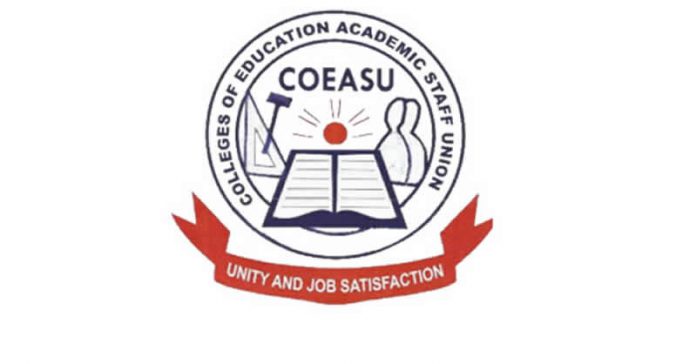The Colleges of Education Academic Staff Union (COEASU) has given Nigerian government a 21-day ultimatum as they are threatening to embark on industrial action.
The union’s president and the general secretary, Smart Olugbeko and Ahmed Bazza, respectively, in a statement said the ultimatum was issued after their national executive council (NEC) meeting.
COEASU who called on well-meaning Nigerians and concerned parties in the tertiary education sector, to prevail on the government to urgently take appropriate actions before the ultimatum lapses, noted that should the federal government fail to do the needful within the period of the ultimatum, they would declare appropriate industrial action.
The union lamented that Colleges of Education have continued to suffer untold hardships through non-payment of salary and salary arrears as well as refusal to implement the statutory salary structure in full.
According to them, the Integrated Personnel and Payroll Information System (IPPIS) is causing more havoc to tertiary institutions than good.
They disclosed that a total of 1,219 lecturers across various colleges of education are experiencing one problem or the other with IPPIS.
The statement read in part:
“The National Executive Council (NEC) of our great union convened at the Federal College of Education, Okene, Kogi State on May 6 to compile the outcome of a referendum conducted across all chapters nationwide.
“The NEC observed, with consternation, that the FG has been ridiculously unfair to the union by taking the understanding shown over time for granted and leaving issues unaddressed, in spite of the union’s entreaties.
“The government has refused to accede to our demand for the fulfilment of her own pledge of N15bn revitalisation fund.
“Apart from being a far cry from N478bn, being the outcome of the 2014 Presidential Needs Assessment across public COEs, the delay in its release has made nonsense of the value due to inflation.
“Many colleges find it difficult to run smoothly due to non-release of running costs by the government.”











